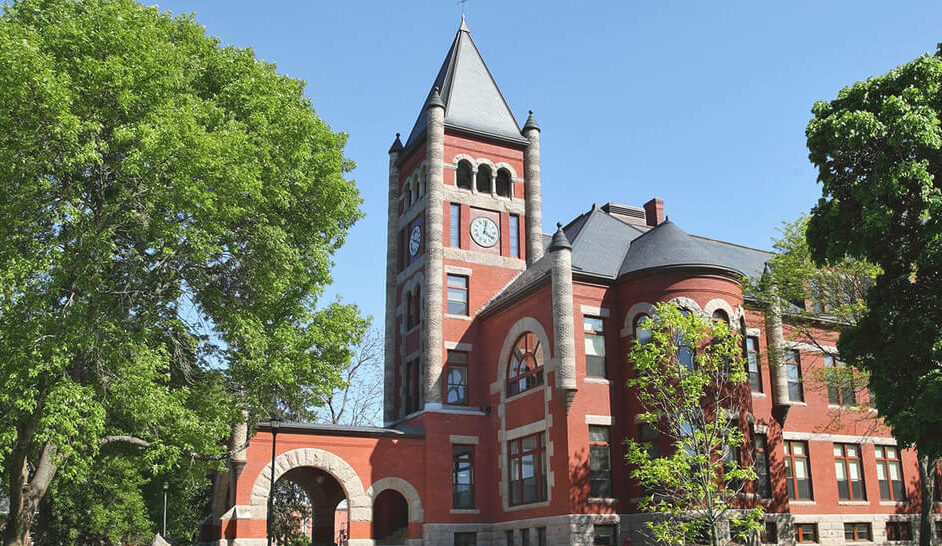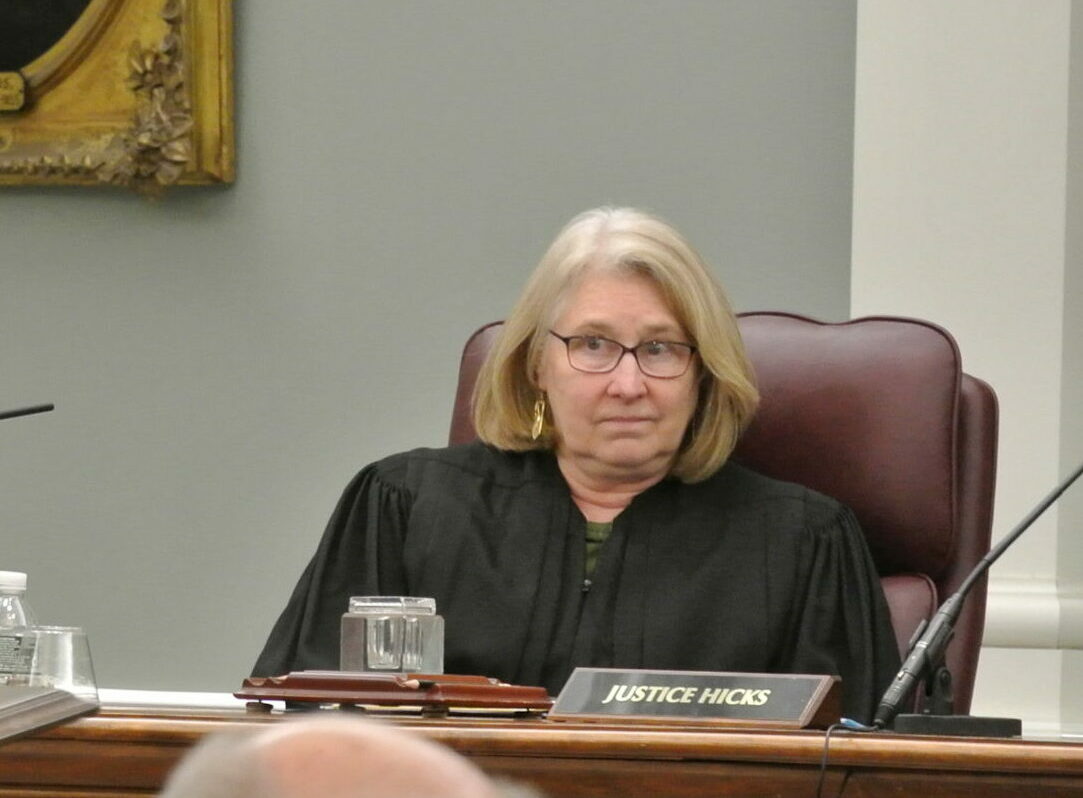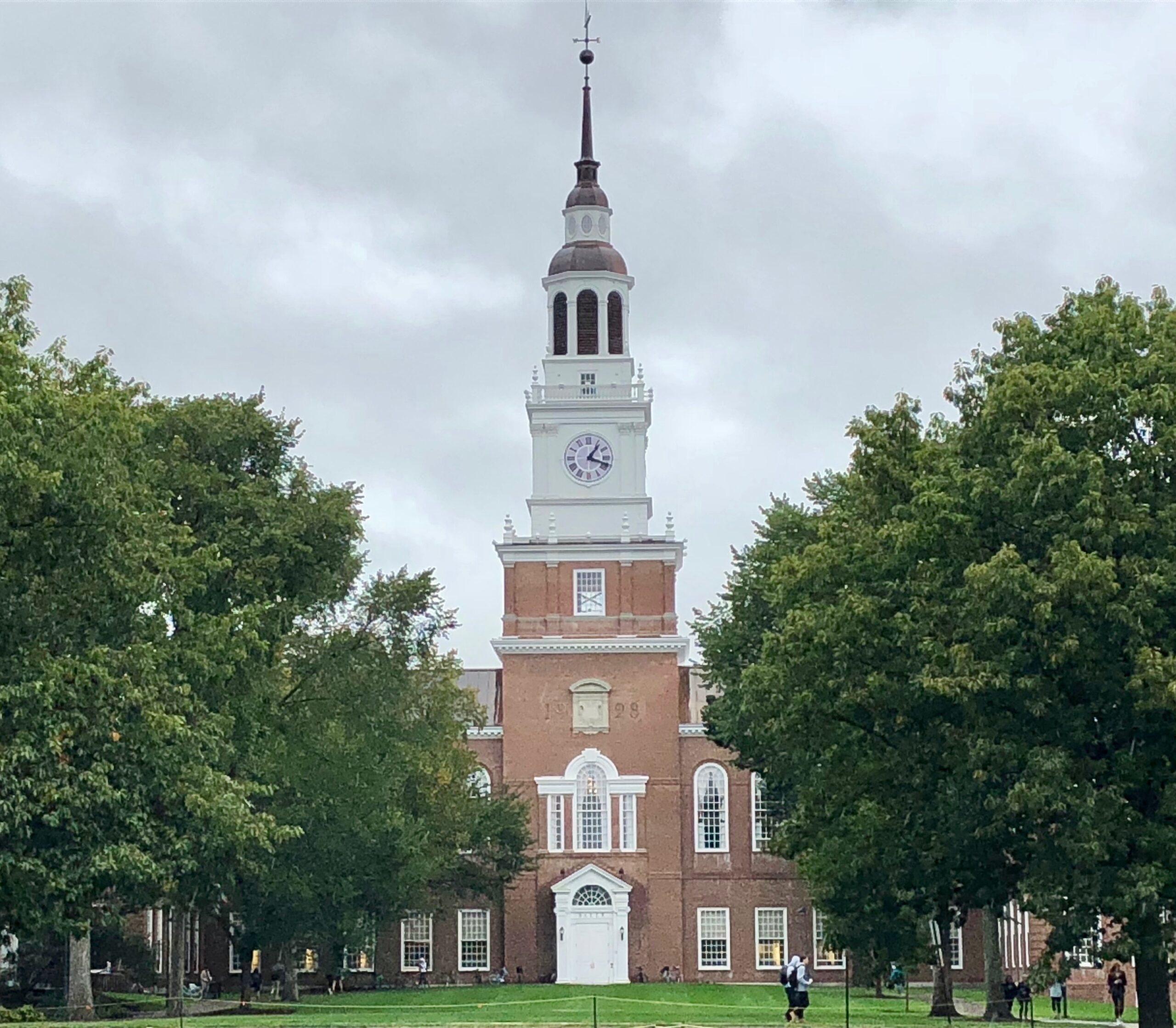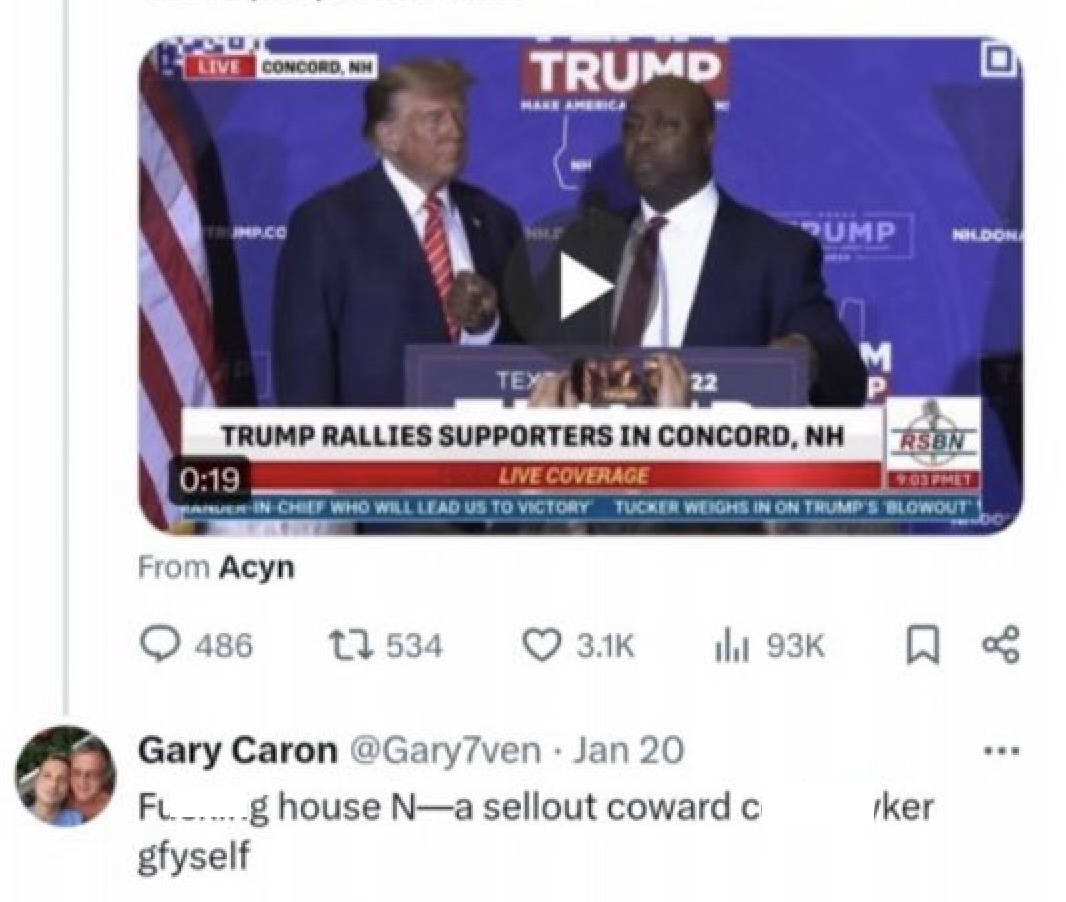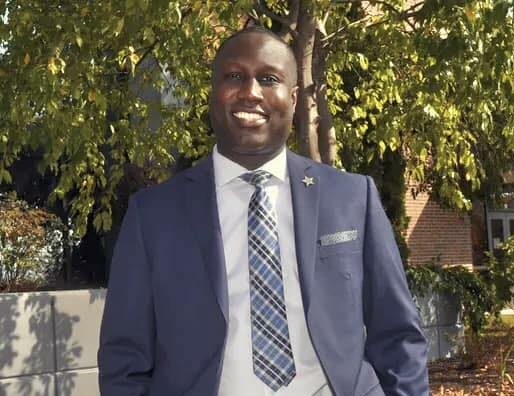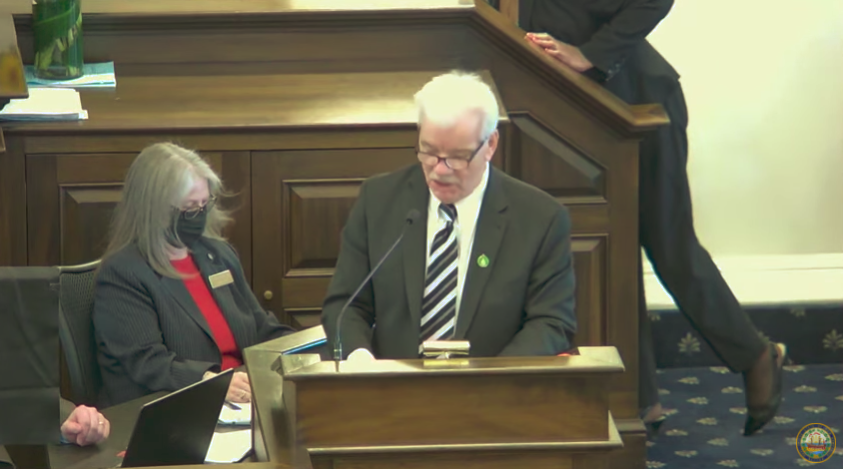Activists Say League of Women Voters Ambushed Wheeler

After Tuesday night’s League of Women Voters “listening session” in Peterborough devolved into an hour of angry White liberals shouting at the lone African American, Rep. Jonah Wheeler (D-Peterborough), some of the attendees now want answers.
In a letter to the LWV, leaders of the activists groups LGB Courage Coalition and Democrats for an Informed Approach to Gender expressed their anger over the event, which has received tens of thousands of views over social media.
“You hold responsibility for this debacle. The March 25 event was a betrayal of trust and a squandered chance for meaningful dialogue,” wrote leaders of the activists groups LGB Courage Coalition and Democrats for an Informed Approach to Gender.
Instead of a calm conversation about his recent vote in support of girls-only sports, Wheeler found himself in a room packed with people hurling insults and accusing him of killing transgender people. He was called a “fascist,” a “useful idiot” and — perhaps most shockingly for Peterborough state representative — a Republican.
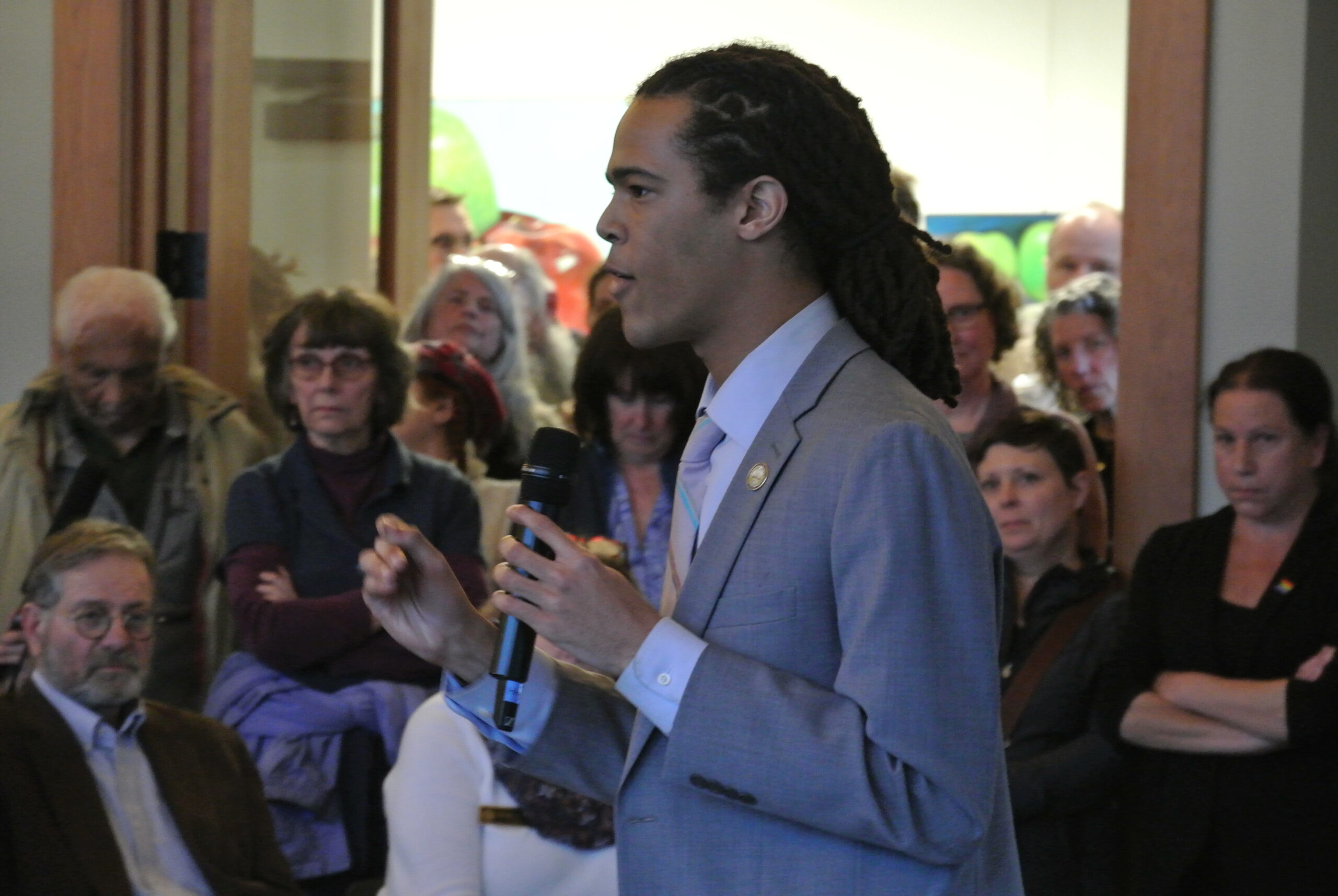
Rep. Jonah Wheeler (D-Peterborough) takes questions at the Peterborough Town Library, March 25, 2025.
“In a room of about 200, Wheeler, a 22-year-old Black legislator, faced shouted accusations of ‘traitor’ and ‘fascist’ from a predominantly White, progressive crowd,” the letter states.
The letter, sent Thursday, demands answers from New Hampshire President of the League of Women Voters Liz Tentarelli as to why and how the event was allowed to spiral out of control.
Conditions inside the room were chaotic and unsafe, the activists wrote. Hundreds of people crammed the meeting room inside the Peterborough Town Library, and some of the pro-transgender audience members acted to intimidate members of the press and people there to support Wheeler.
“The room became unsafe: you allowed late arrivals—angry, agitated non-supporters—to stand and block doorways, cutting off emergency exits … A journalist reported that her notebook was searched by Jane, the individual at the front of the room who used profanity towards Rep. Wheeler.”
Tentarelli disputes some of the claims in the letter, and blames groups like LGB Courage Coalition and Democrats for an Informed Approach to Gender for causing the overcrowding problem.
“The event was not intended as a platform for out of state groups to promote their views. The time for stating views is public hearings in the legislature,” Tentarelli told NHJournal in an email.
Tentarelli did not attend the event in person.
The journalist getting harassed and intimidated by Jane was witnessed by NHJournal, as were other instances of attendees expressing hostility toward members of the press. Tentarelli did not address the treatment of the press in her response.
Just as bad as the conduct inside the room was the pornographic and racist material flooding the Zoom feed for people who wanted to watch the “listening session” remotely.
“Hackers flooded the feed with pornographic, racist, and bestiality images, music, and noise, disrupting Wheeler’s remarks. Your failure to secure the platform with basic measures—muting participants or requiring authentication—was inexcusable, and when it crashed, you abandoned it,” the letter states.
Tentarelli acknowledged the problem with the Zoom feed, and she said there are plans to avoid that issue for the next “listening session.”
“The shameful behavior of an unidentified entity who disrupted the Zoom call was appalling. As a result, future listening sessions will likely be recorded for later viewing, rather than be on Zoom,” Tentarelli wrote.
The LGB Courage Coalition and Democrats for an Informed Approach to Gender letter accuses Tentarelli and the League of Women Voters of using the event to shame Wheeler and drive him out of office.
“These failures suggest more than negligence—they point to intent. You set a trap, not a forum,” the letter states.
But Tentarelli disputes that accusation as well, saying she and the League of Women Voters are strictly non-partisan.
“The League of Women Voters never supports or opposes any party or candidate,” Tentarelli said.
Also on Thursday, the University of New Hampshire released a new poll showing 71 percent of Granite Staters support Wheeler’s position backing a ban on males who identify as female competing in women’s sports. Just 21 percent oppose it.
The LGB Courage Coalition and Democrats for an Informed Approach to Gender want Tentarelli to commit to a new listening session with Wheeler that actually allows for a civil conversation. That means competent technicians operating a live Zoom feed, a safe in-person environment in which members of the press will not be harassed, and a balanced panel of moderators to steer the conversation.

